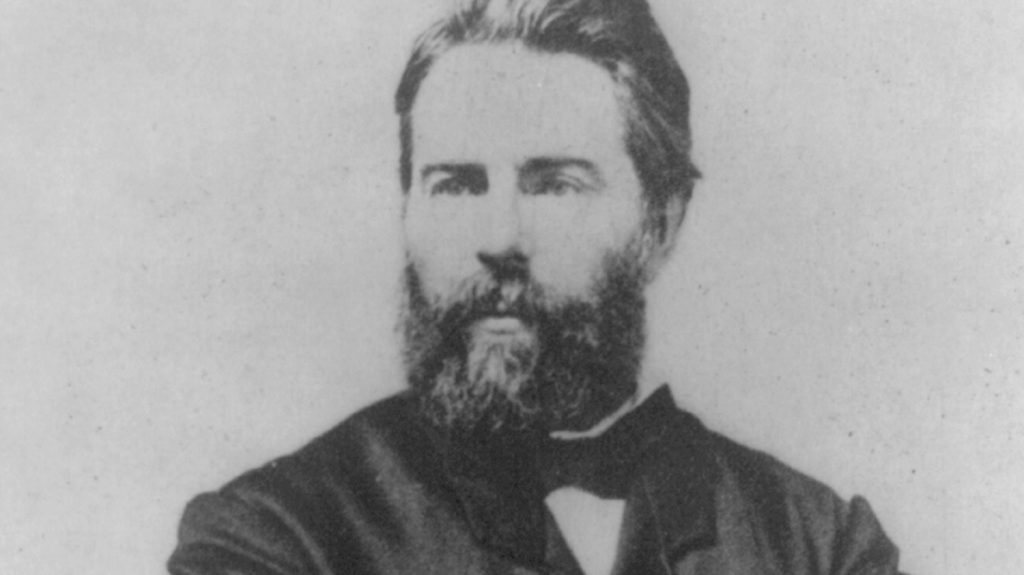Herman Melville (above), the author of Moby-Dick, was born in New York City today in 1819. His mother, Maria Gansevoort, was a member of the Dutch Reformed Church, which baptized young Herman (literally as well as metaphorically) into the Calvinist tradition, and saturated him in the Old Testament to such an extent that his writing often feels like a continuation of the King James Bible.
‘Were I the wind, I’d blow no more on such a wicked, miserable world. I’d crawl somewhere to a cave, and slink there. And yet, ’tis a noble and heroic thing, the wind! who ever conquered it? In every fight it has the last and bitterest blow. Run tilting at it, and you but run through it. Ha! a coward wind that strikes stark naked men, but will not stand to receive a single blow.’ Captain Ahab in Moby-Dick
Today in medieval England was Lammas Day (‘Loaf-mass’ Day), a harvest festival, where the bread consecrated at Mass was baked using the first crop cut from the fields. It was a way of blessing the harvest and giving thanks for it. Lammas Day, which was a holiday, dates back at least to the time of King Alfred the Great in the 9th century.
It was upon a Lammas night,
When corn rigs are bonie,
Beneath the moon’s unclouded light,
I held awa to Annie:
The time flew by, wi’ tentless heed,
Till ’tween the late and early;
Wi’ sma’ persuasion she agreed,
To see me thro’ the barley.
Robert Burns, ‘Corn Riggs’
Nicholas Rémy, a French magistrate who was highly influential in the witch hunts of his and later times, joined the Privy Council of Lorraine today in 1589. He was already known by then as the ‘scourge of witches’, and later boasted that in just 16 years he had condemned some 800 people to be burned at the stake for ‘the crime of witchcraft’, and that the number would have been doubled if his victims had not either escaped or failed to break under torture. He detailed the supposed habits of witches and characteristics of demons in his book Demonolatry, published in Lyon in 1595, which provided ammunition for witch trials in the 17th century.
It is the birthday of Sabbatai Zevi, a Jewish Rabbi from Smyrna, Turkey, who was born today in 1626. At the age of 22, he said he was receiving visions from God, claimed he could fly, and announced himself as the long-expected Messiah. He travelled throughout the Ottoman Empire, gaining followers and growing rich through the donations of wealthy admirers, until he was imprisoned in Constantinople by the Grand Vizier. The Vizier gave him a three-way choice: face a hail of arrows, which could only be survived by the true Messiah; get impaled; or convert to Islam. It took Zevi precisely one day to throw away his Messiah’s robes and start wearing a Turkish turban. Many of his disciples continued following him, saying his conversion was part of a cunning plan. He died in exile 10 years later.
Today in the year 314, the Council of Arles met to resolve an argument about what to do with people who had compromised their faith under persecution. In the previous decade, some priests had surrendered their scriptures and lists of church members to the persecuting magistrates. The council ruled that they should lose their jobs. It also excommunicated actors, charioteers, young women who married unbelievers, and Christians who refused to do military service.
Image: Library of Congress
